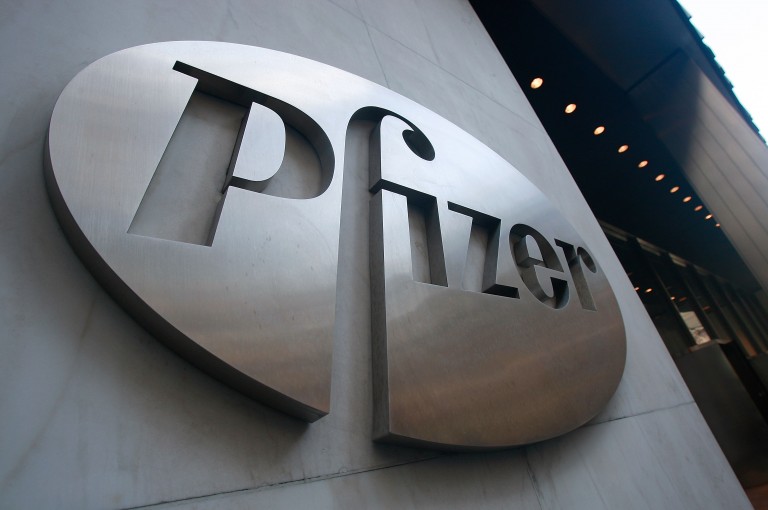
Pfizer Inc. (NYSE:PFE) released on Thursday the results of the Phase 3 clinical trial of XELJANZ (tofacitinib citrate) among patients with moderate-to-severe ulcerative colitis (UC), which is also known as the Oral Clinical Trials for Tofacitinib in UC (OCTAVE) Sustain.
The pharmaceutical giant on Thursday had also revealed partnering and entering into a licensing and option agreement with Western Oncolytics, with the primary goal of advancing the latter’s WO-12, a novel oncolytic vaccinia virus that targets cancer cells without harming non-cancerous cells.
OCTAVE Study Design and Results
With the OCTAVE Sustain, a randomized, double-blind, placebo-controlled, parallel group, multi-center study, the researchers tested the safety and efficacy of tofacitinib. The drug, which was given orally as a maintenance medicine, among adult patients suffering from moderate-to-severe UC who have attained a clinical response previously in either OCTAVE Induction 1 or OCTAVE Induction 2 clinical trials. The study lasted for 52 weeks.
During the 52nd week, the better-than-expected results showed that the drug achieved its main efficacy endpoint. However, no safety-related measures have been determined.
Michael Corbo, Ph.D., Pfizer Chief Development Officer of Inflammation & Immunology, noted that the results from OCTAVE Sustain and the two previous OCTAVE studies are highly encouraging for the company. Consequently, Pfizer will continue to work on its tofacitinib program in order to help improve the condition of those suffering from UC and aid the patients dealing with it.
Collaboration With Western Oncolytics
Accordingly, Pfizer and Western Oncolytics will work hand-in-hand on the preclinical and clinical development of WO-12. The two companies will develop and oversee Phase I clinical trials and Pfizer will acquire WO-12. The partnership with Western Oncolytics is part of its plans to further grow its immuno-oncology treatment portfolio.
James Merson, Ph.D., Pfizer Chief Scientific Officer of Vaccine Immunotherapeutics, noted that the company aims to explore the potentials of WO-12 and eventually include it in Pfizer’s immunotherapy portfolio. He further elaborated that the success of immuno-oncology treatments lay in promising combinations that arise from dedicated advancement programs.




